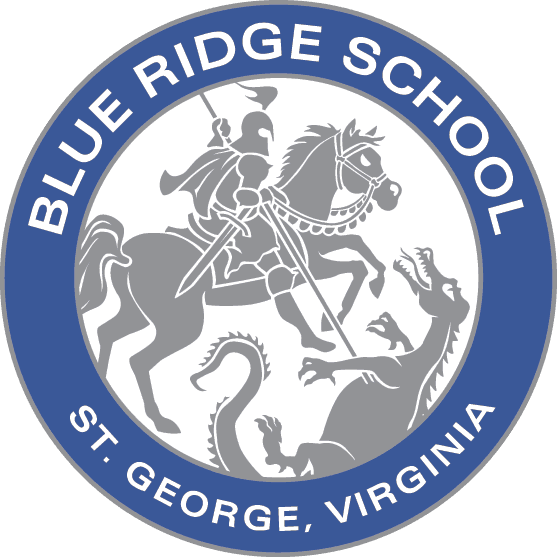
It was the beginning of a new academic year in the fall of 2007, and the gates of the school stood wide open, inviting the annual wave of “new boys” onto our beautiful campus, which would, for the next nine months, become their home away from home. Among that number was a young man named Brooks Minford, who, at first, proved to be a rather quiet fellow. He did not seek to attract attention nor to make an immediate reputation for himself. His intention was to take advantage of the opportunities that his new school could provide. But first, he needed to get his footing and learn the ropes.
In his previous schooling, Brooks had performed satisfactorily, but he knew that in order to achieve the goals he hoped to reach, which could prepare him to succeed in college and then in whatever career he might pursue thereafter, he would have to undertake his work seriously and diligently. And so, he focused his attention and efforts on this first major challenge. This is not to say that his time at Blue Ridge was to become “all work and no play.”
In those early days as a “new boy,” Brooks began to fall into the normal routines of boarding school life, beginning with getting out of bed at the sound of the dorm’s morning bell, dressing in coat and tie, going down to the cafeteria for breakfast, then to the all-school assembly for that day’s announcements, followed by his classes. After three-thirty in the afternoon, it was off to athletics down on the school’s playing fields – then to dinner. His weekday evening two-hour study hall allowed time to prepare homework, which was followed by free time to enjoy himself with his friends until lights out at 11:00. Brooks found the structured routine to be helpful, in that it allowed him to use good judgement when dealing with people and time management. Living in a community such as Blue Ridge School also allowed Brooks to establish relationships with classmates from all parts of America, but also with classmates from Europe, Canada, Asia, the Middle East, and Central America. He has been grateful for the opportunities that being a student at Blue Ridge offered to him, which have enabled him to interact in his current business career with colleagues from many different countries.
Brooks knew that in order to be prepared for success in college, he would need to be challenged in the classroom by faculty who would prepare him for admission to reputable institutions of higher learning. Therefore, he approached his nightly assignments with both determination and focused study. He quickly earned the respect of his teachers, who were willing to support his efforts and to meet with him on those occasions when he needed their help. Brooks quickly earned the respect of the faculty, who saw him as a student with both a commitment to learn and the willingness to take the extra time to do his very best. On the eve of his graduation from Blue Ridge School, Brooks stated the following. “The past three years here have, without a doubt, challenged me. If it weren’t for this school, I doubt that I would be as prepared for the stresses and challenges that are awaiting me next fall.”
Yet, Brooks’ experience at Blue Ridge promoted more than book learning. His classmates became aware of the quiet but determined commitment he had to living his life so as to follow a strong and fair code of honor. As his junior year began to approach its close, the faculty and student body undertook the annual ritual of selecting the new senior leadership who would be appointed to assume positions on either the Prefect Board, the Honor Council, or the Disciplinary Committee. Each of these committees was responsible for upholding the school’s code of conduct and honor. When all of the votes were counted, the school community had confidence enough in Brooks to appoint him to serve as a member of the Honor Council, whose responsibility was to recommend to the headmaster whether a student had or had not acted in a dishonorable manner, thus subjecting him to possible expulsion. It was a weighty responsibility Brooks and his fellow council members faced when they reported their verdict to the headmaster for his final decision. This experience tested the integrity and wisdom of each council member, and it afforded Brooks the opportunity to make difficult decisions, such as the ones he would have to make in later life.
Looking back at his Blue Ridge School years, it was the leadership lessons and experiences that Brooks most appreciated. He has carried these into his adult life, which he now considers to be his “career strengths.” They have worked very well for him. Among these skills are: knowing how to communicate clearly with others, how to use good judgement, how to deal fairly and honestly with others, how to manage one’s time efficiently; and how to establish good and honest relationships with others, which in turn build confidence and trust. His commitment to fairness and honesty are the pillars of the successful career Brooks has built.
After graduating from college in 2013, Brooks went to work for a company in Florida that operated a series of retirement homes for the elderly. His top priority was to see that each retirement home was providing the best care and support for its patients. He managed these various homes for a number of years and then moved into the world of real estate, where he now enjoys putting deals together.
The successes Brooks displayed in the years following his graduation from college so impressed the school’s Board of Trustees that they asked him to join their ranks. In 2017 Brooks agreed to do so, and because of his commitment to the school and the opportunity to strengthen its future development, he took on the responsibility of chairing the External Affairs Committee, which oversees the operation of both the Admissions and Advancement Departments. In both of these areas of responsibility, Brooks has provided advice and support that has enriched the school’s recruiting and fundraising efforts that have improved the school’s quality of life and learning.
Brooks Minford stands among a significant band of “Blue Ridge Brothers” who, after benefitting from the academic, athletic, and social interaction the school has provided, have put what they have learned and experienced during their “BRS” years to constructive use as leaders and role models.



